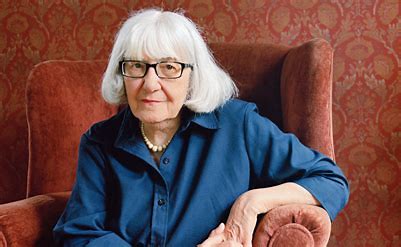https://www.huffpost.com/entry/fossil-daddy-lgbtqa-paleontologist_n_64073d31e4b029d8701870bd
Last year, my husband Tom received this memorable text from his father: “FYI, getting brain surgery tomorrow. Don’t worry. I’ll be fine.”
This was the first we had heard about his brain surgery. When Tom phoned his dad and asked why he wasn’t told sooner, my father-in-law had a clear explanation: He’d delayed his visit for so long that, when he finally saw a doctor, his symptoms had progressed and he was immediately booked for the procedure. (Happily, he fully recovered and is fine.)
It appears that this is a shared trait among the men in my family. Over the summer, my husband pretended an abscess on his back didn’t exist until it resembled a dolphin’s dorsal fin, and he ended up in Urgent Care, still protesting that it was probably a bug bite.
Many men, of course, are more diligent about regularly seeing a doctor than those in my family. But a 2022 Cleveland Clinic survey of 1,000 U.S. men found that 55 percent said they don’t get regular health screenings. Men of color were even less likely to see a doctor regularly — a full 63 percent dodged routine visits.
Another 2022 poll, conducted by Orlando Health, found that a third of the men surveyed thought they didn’t need checkups, while 65 percent believed they could skip seeing a doctor because they’re “naturally healthier than most people.” (This prompted Dr. Thomas Kelley, an Orlando Health family medicine specialist, to point out that it is “statistically impossible for the majority of men to be healthier than the majority of men.”)
Women, on the other hand, are significantly more likely to make an office-based visit, according to 2018 data from the Centers for Disease Control and Prevention. “It’s well documented that, compared to women, men are much worse at preventive care,” said Petar Bajic, a urologist at the Cleveland Clinic.
Some men shy away from seeing doctors because they fear receiving bad news, said Dr. Joseph Alukal, urologist and director of Men’s Health at NewYork-Presbyterian/Columbia. Some men might also “fall into the trap of just sticking our head in the sand,” he said. My father-in-law, for instance, ignored his blurred vision and headaches for months.
But avoidance can make the anxiety and fear worse, said Nora Brier, an assistant professor of clinical psychiatry in the Perelman School of Medicine at the University of Pennsylvania. And if a patient waits until symptoms are severe, “it does tend to propagate a stigma that they should be scared of the doctor’s office,” Dr. Bajic said.
There are other reasons men might delay checkups, Dr. Alukal explained. In his experience, health issues are “very rarely discussed with other men.” And many young men, he added, aren’t conditioned to make regular doctor visits the way that young women are encouraged to schedule annual OB-GYN appointments.
Diana Sanchez, a professor of psychology and department chair at Rutgers University, has found in her research over the years that men who have more traditional beliefs about masculinity are less likely to use preventive care or seek medical treatment for injuries and infections — because they tie this resistance to bravery and self-sufficiency.
As those men get older, however, this reluctance to get routine medical care can have serious consequences, Dr. Alukal said. Men die younger than women, according to data from the C.D.C., and some of the leading causes of death — like heart disease and diabetes — are conditions that doctors screen for during routine checkups.
If you are a doctor-resistant man, like my husband and his dad, here are a few ideas that may help you inch closer to making that appointment.
Find a doctor you trust.
Even if you’re willing to visit a doctor, finding one that you trust can be a challenge. You can ask friends and family members for recommendations, or use platforms such as Vitals, an online physician booking site where patients can leave detailed ratings.
When you decide on someone, “see if you have rapport with the person, if you’re feeling like the provider is warm, or matches your personality style,” said Dr. Brier. And if you’re uncomfortable with a doctor, “get a new one,” she said. Even if you are limited to a particular practice, there might be other physicians on staff that meet your needs.
If you’re nervous, start with a telehealth appointment.
Check to see if your initial visit can be done virtually, said Dr. Alukal. “It’s better than nothing, and it’s a great place to start if it gets you closer to coming in and seeing me,” he said. After this first visit, he has found, patients are less resistant to an in-person appointment, because he has already created a relationship with them.
Be open with your doctor about any fears you have, Dr. Brier advised. “If you have worries about family members’ illnesses or the way they were treated when they had diagnoses, share them,” she said.
Bring a loved one to in-person visits.
Heading into the office is still essential, Dr. Bajic said. Some conditions, such as high blood pressure, which is a major risk of heart disease, can only be diagnosed during a physical exam, he said.
Skin conditions are often noticed during physical exams, too — and men are more likely than women to develop melanoma by the age of 50, according to the American Academy of Dermatology.
And symptoms such as erectile dysfunction can be the first sign of a more significant issue, and often warrant a more thorough checkup, Dr. Alukal said, adding that erectile dysfunction can precede more serious problems, like a heart attack.
“It’s not uncommon that, when a man sees me for some urination-related issue, that I may end up diagnosing him with conditions like diabetes or undiagnosed obstructive sleep apnea,” he said.
So get a date on the calendar, said Dr. Brier, and bring a loved one along for support — whether it’s a partner, a friend or even a kid. And consider snagging the first appointment of the day to avoid prolonged jitters and the impulse to cancel.
Going to the doctor gets easier.
As for routine appointments, Dr. Bajic used a car analogy for his patients: “If they’re good about doing regular maintenance on their car, they should be good about doing regular maintenance on their body,” he said. (Instead of an oil change, prioritize a cholesterol check.) The Mayo Clinic has a short list of recommended annual screenings for men.
“The more you do the thing you fear, the easier it’s going to be,” Dr. Brier added.
Tom’s dad didn’t enthusiastically run to the doctor; his wife nearly threw a net over him and dragged him there. If you also have a reluctant man in your life, Dr. Alukal suggested being persuasive without guilt-tripping or shaming.
Tell your loved one how much you care about them and how much you want them to stay healthy, he said. “There aren’t too many people who are going to fight back too hard when they hear something like that,” he added.







